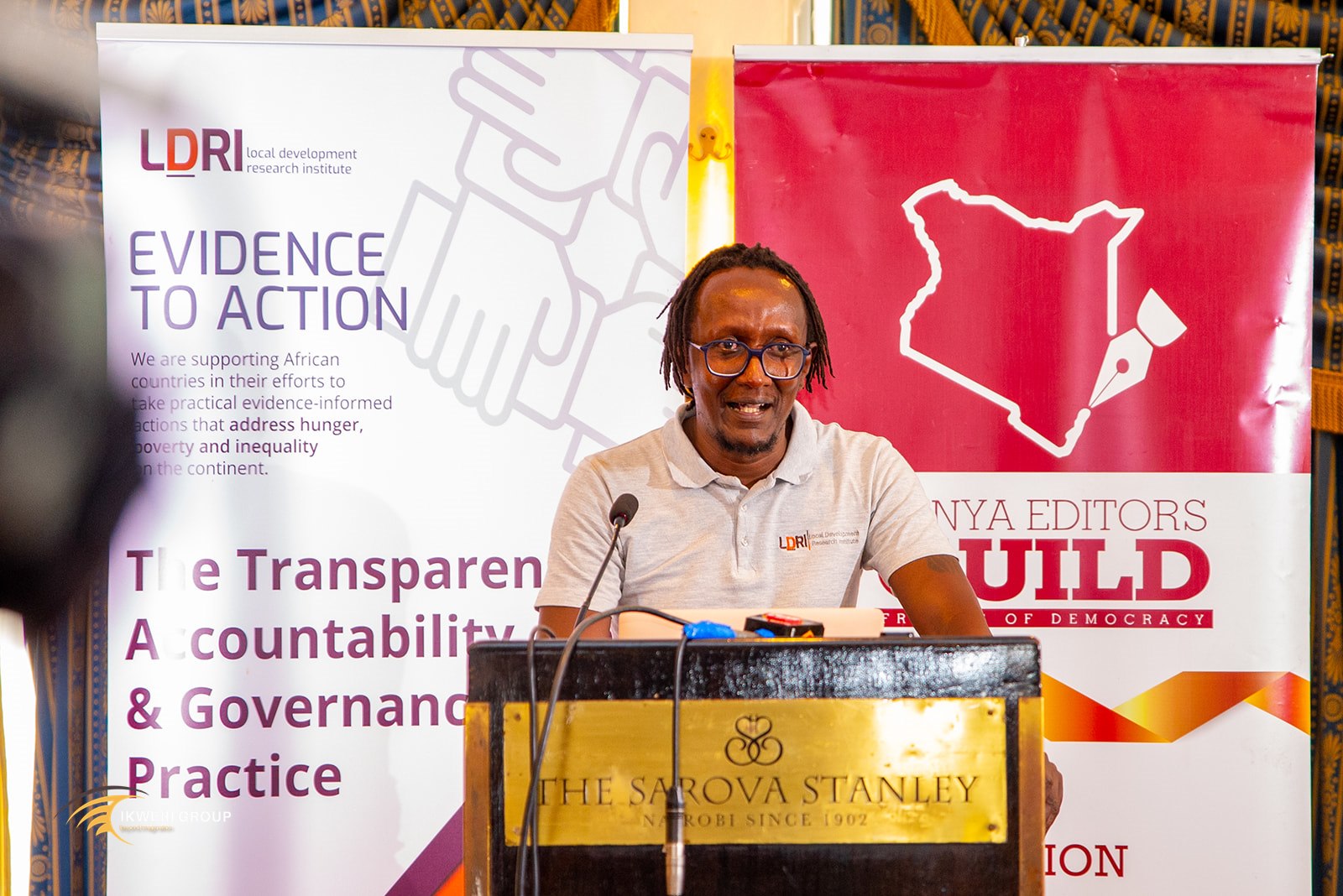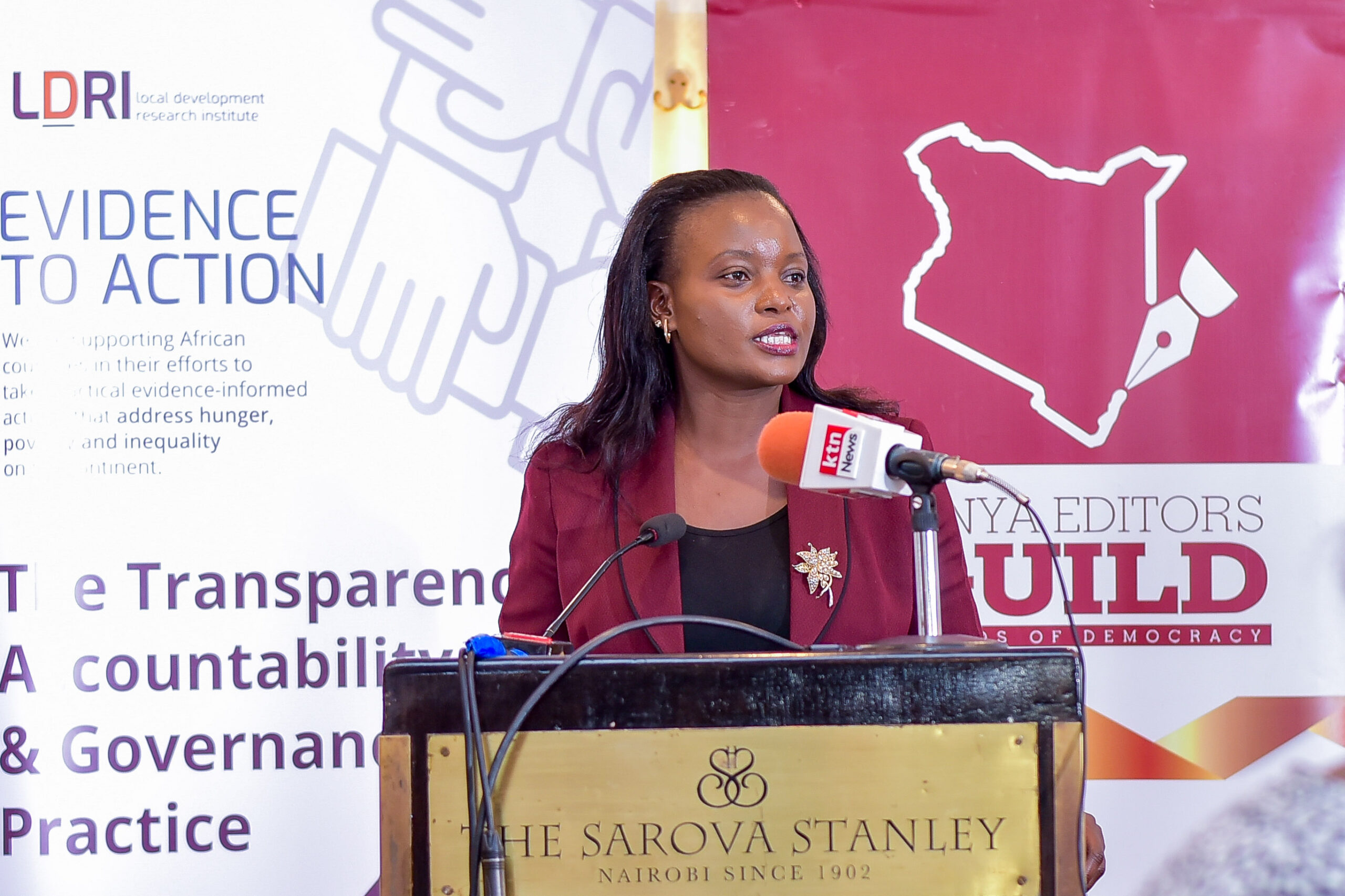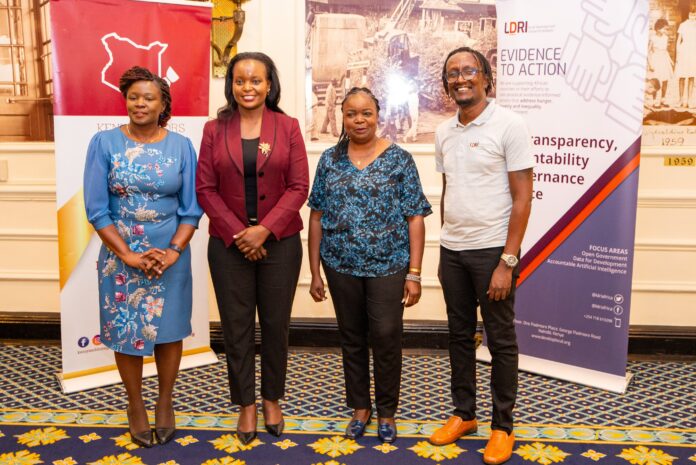By Winnie Kamau
Nairobi, Kenya: There’s an urgent imperative to invest in and allocate resources to bolster the ICT infrastructure in the counties, as they strive to efficiently capture data.
Muchiri Nyaggah, the Executive Director of the Local Development Research Institute (LDRI), stressed this during a Kenya Editors Guild Press Club event hosted by Hon. Harriette Chiggai, the President’s Advisor on Women’s Rights.
The mantra of the day, echoed by Hon. Harriette, was “Without data, it’s just your own opinion.”

Muchiri, who also unveiled the report titled “Towards Improved Capacity for Data-Informed & Inclusive County Governments,” highlighted the critical need to invest in data capacity.
“It is essential to allocate sufficient resources and establish central data repositories to serve as unified sources of County datasets,” he remarked.
The report, which assessed data capacity levels in four counties—Kakamega, Murang’a, Tharaka Nithi, and Embu—through quantitative surveys aligned with the County Integrated Development Plans (CIDP), revealed several challenges.
Departments resort to a mix of government and personal computers due to constraints in financing infrastructure, posing risks to collected data. Moreover, data is often stored in individual emails, and USB drives, or downloaded on computers, raising security concerns.

The assessment underscored the urgent need to disaggregate data in counties across various factors like gender, sex, and age, which are frequently unavailable. Additionally, it emphasized the necessity of enhancing counties’ data analysis and presentation skills to augment existing capabilities in data collection methodologies and tools.
“We produce data capacity assessment reports for County Governments to show where the data gaps and needs lie in decision-making processes. The idea is to include a cost framework to help in allocation of resources” firmed Muchiri.
Key obstacles identified in the report include missing, inadequate, and outdated data, impeding effective decision-making processes. Muchiri affirmed plans to extend the assessment to other counties and called for increased partnerships to address resource constraints.
Hon. Harriette stressed the importance of gender-disaggregated data for inclusive development, advocating for the adoption of gender mainstreaming strategies across all stages of data production, dissemination, and analysis.

“We have seen gaps that exist based on the LDRI study, in the case of gender data there is a need to adopt a gender mainstreaming strategy at all stages of data production, dissemination, and analysis. Unless counties are deliberate in finding the women in data, the development will not fully speak to the needs of the population” said Hon. Harriette.
She emphasized that robust gender data is essential for evidence-based policies, targeted interventions, and informed decision-making, crucial for achieving gender equality.
” High-quality gender data enables evidence-based policies, targeted interventions, specific investments, and informed decision-making. Without robust gender data, achieving gender equality becomes nearly impossible” she said.
Rosalia Omungo, the Chief Executive Officer of the Kenya Editors Guild (KEG), echoed the sentiment, calling for capacity building for journalists in data journalism to effectively mine data from various reports.
“Data Journalism calls for continued training for Journalists so that they can understand how to mine data from various reports,” said Rosalia.
Informed decisions hinge on data as the bedrock, unraveling intricate interdependencies and impacts across diverse sectors. By harnessing relevant data, governments can identify service deficiencies, formulate targeted policies, and meticulously monitor progress.














